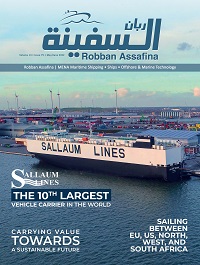DP World Southampton: first British port to replace diesel with HVO
DP World's container terminal at Southampton becomes the first port in Britain to eliminate fossil diesel from its operations entirely and transition to Hydrotreated Vegetable Oil (HVO).
Diesel previously accounted for 90% of the terminal’s emissions but HVO – a renewable biodiesel derived from sustainable sources – eliminates more than 80% of net carbon dioxide emissions as well as significantly reduces nitrogen oxide, particulate matter and carbon monoxide.
John Trenchard, UK supply chain director at DP World, stated, “I am delighted that we have successfully made the leap to fuelling all of our fleet and installations at Southampton with HVO. This innovation shows our determination to continue playing our part in helping the UK meet its target of delivering the Government’s Net Zero 2050 policy and improving local air quality.”
He said that DP World Southampton estimates that "using HVO will save around 14,000 tons of carbon dioxide on an annualised basis."
Trenchard went on to add, “DP World Southampton moves more than one quarter of all containers by rail and we are encouraging other customers to embrace this modal shift. Taken together with DP World London Gateway, we take 300,000 trucks off UK roads each year and every additional daily train we can fill saves up to 6,000 tons of carbon dioxide per year.”
DP World first trialled HVO last year, using the fuel in its forklift trucks, reefer (refrigerated unit) generators and straddle carriers, which lift containers moved by the quay cranes and then service onward forms of transport via road and rail.
Based on actual diesel usage calculations and replacing these with HVO technical data, a net carbon dioxide reduction of more than 80% was calculated.
DP World Southampton pointed out that HVO is regarded as an "interim solution", while electric and hydrogen power are examples of alternative energy sources that are being researched and trialled within DP World. It is important to note that the company's new Berth 4 at London Gateway could be 100% electric when it is completed in 2024.
Source: Container News
| Read Here | |
 |
|



































